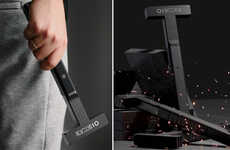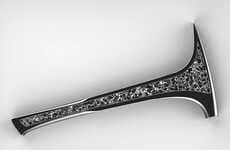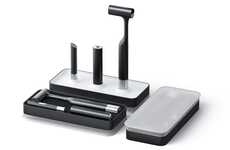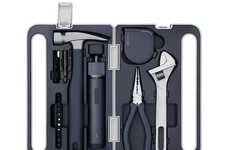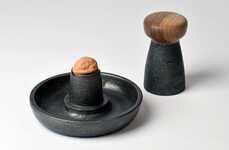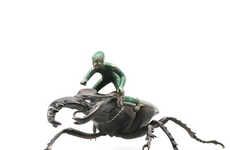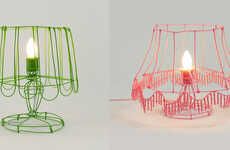
Paul Martus Adds a Human Touch to Machinery (UPDATE)
Shelby Lee Walsh — July 1, 2009 — Unique
References: designmartus & designboom
The oldest tool used by man is his hands, and American designer Paul Martus uses his to create humanized tools. His ‘hand wrench’ cast in bronze resembles (as the title implies) a realistic human hand. The similar ‘early tools’ hammer is comprised of two sculpted fists.
All of Paul Martus’ works create a machinery vibe with elements of earth and humanity. Even his rack made of steel and nuts looks hard, but it is designed to hold plants.
Check out the gallery for some more humanized machinery!
All of Paul Martus’ works create a machinery vibe with elements of earth and humanity. Even his rack made of steel and nuts looks hard, but it is designed to hold plants.
Check out the gallery for some more humanized machinery!
Trend Themes
1. Humanized Tools - There is an opportunity to incorporate more human-like characteristics into traditional tools to make them more relatable and appealing to consumers.
2. Sculptural Design - Incorporating artistic design into tools and machinery creates a unique selling proposition and can help companies differentiate themselves in the market.
3. Functional Art - Designing products that merge functionality and artistic expression, like Paul Martus' racks designed to hold plants, can create new opportunities for innovation and product development.
Industry Implications
1. Tool Manufacturing - Tool manufacturers can embrace the idea of humanizing their products through unique and artistic designs.
2. Home Gardening - Functional art, like Paul Martus' racks designed to hold plants, can create new opportunities for innovation and product development in the home gardening industry.
3. Industrial Design - Companies specializing in industrial design can offer services that combine functionality and aesthetic appeal, meeting the demand for unique and artistic designs in the market.
1.1
Score
Popularity
Activity
Freshness



